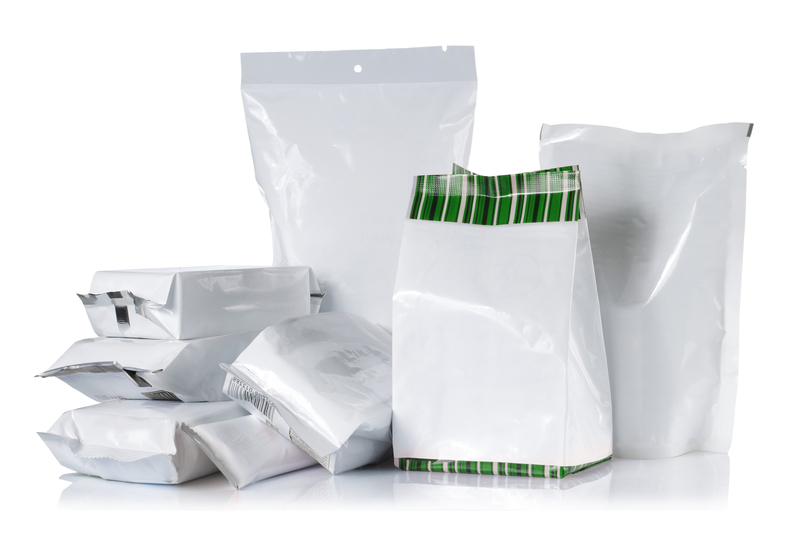Simple Home Hacks for Optimal Waste Prevention
Reducing waste at home isn't just about protecting our environment--it's also about saving money, saving time, and simplifying your life. With growing concerns over landfill space and plastic pollution, adopting simple home waste prevention techniques is more important than ever. In this comprehensive guide, we'll explore a variety of easy and effective strategies to optimize waste prevention at home. Whether you're new to sustainability or looking to enhance your efforts, these smart waste reduction hacks will help you make meaningful changes while keeping things convenient.

Why Waste Prevention Matters
Before diving into hacks, it's crucial to understand the significance of waste prevention at home. Unlike recycling, which manages waste after it's created, waste prevention aims to reduce or eliminate waste before it's even generated. By minimizing waste, we conserve resources, decrease pollution, and support a cleaner community.
- Protects the Planet: Every pound of waste prevented means less strain on landfills and fewer greenhouse gas emissions.
- Saves Money: Buying less and using resources more efficiently leads to lower household expenses.
- Streamlines Life: Keeping fewer items means less clutter, less cleaning, and more space in your home.
1. Adopt a Mindful Shopping Approach
Plan and List Before You Shop
A primary source of household waste stems from buying items we don't really need. Start with a minimalist shopping list--plan your meals, take inventory of what you already have, and write down exactly what you need before heading to the store.
- Shop with Purpose: Avoid impulse buys by sticking to your list and only selecting items intended for specific uses.
- Say No to Single-Use Items: Choose reusable options wherever possible, such as cloth bags, stainless steel water bottles, and glass containers.
Buy in Bulk and Choose Packaging Wisely
Bulk buying reduces the resources required for individual packaging and often proves more economical. Opt for goods with minimal or recyclable packaging, and bring your own containers when allowed.
- Prioritize loose produce and dry goods from bulk bins.
- Avoid individually wrapped snacks and single-serving products.
2. Smart Food Management
Combat Food Waste
Did you know that about one-third of the food produced globally is wasted? Efficient food management is one of the simplest ways to achieve home waste reduction.
- Practice FIFO (First In, First Out): Arrange pantry and fridge items so older products get used before new ones.
- Store food properly to extend freshness--learn the optimum temperatures and storage techniques for produce, dairy, and leftovers.
- Repurpose leftovers by incorporating them into future meals or freezing for later use.
Composting for Organic Waste Prevention
Turning food scraps into compost is one of the most impactful simple home hacks for waste prevention. Set up a small compost bin or pile, add fruit and vegetable peels, coffee grounds, egg shells, and other organics, then use the compost to enrich your garden.
- Don't compost meat, dairy, or fatty foods to avoid pests.
- Composting reduces landfill waste and greenhouse gas emissions while nourishing your plants!
3. Streamline Household Products and Cleaning Routines
Choose Reusables Over Disposables
Everyday items like paper towels, disposable wipes, and single-use cleaning agents add significantly to household waste streams. Make the switch to reusable alternatives:
- Replace paper towels with washable cloth rags or microfiber towels.
- Opt for mop heads, cleaning pads, and dusters designed for repeat use.
- Choose concentrated cleaning products to reduce packaging waste and save space.
DIY Cleaning Products for Less Waste
Most cleaning needs can be met with simple homemade solutions, reducing the number of plastic bottles and harsh chemicals in your home.
- All-purpose cleaner: Mix vinegar, water, and a few drops of essential oil in a reusable spray bottle.
- Scrubbing paste: Combine baking soda and water for sinks and tubs.
- Glass cleaner: Use a solution of water, vinegar, and rubbing alcohol.
4. Optimize Your Recycling Practices
Understand What's Recyclable
Not all packaging and materials are recyclable in every locality. Visit your local municipality's website or contact them directly to learn the specific recycling rules for your area. This helps prevent "wishcycling" (putting non-recyclables in the recycling bin), which can contaminate whole loads.
- Rinse containers to remove food residue before recycling.
- Flatten cardboard boxes to save space in bins.
- Avoid plastic bags in the recycling stream--they often require special drop-off locations.
5. Cut Down on Paper Waste
Embrace Digital Solutions
With bills, subscriptions, and notes, paper clutter piles up quickly. Switch to paperless billing, e-statements, and digital notes. Use apps to keep grocery lists, recipes, and to-dos easily accessible without printing.
- Reduce junk mail: Register with online services to minimize unsolicited mail and catalog deliveries.
- Reuse one-sided printed paper for notes, shopping lists, or kids' art projects.
6. Give New Life to Old Items
Repurpose and Upcycle
*Before throwing anything away,* ask yourself: Can this item be reused, donated, or creatively repurposed? Upcycling transforms would-be waste into valuable items.
- Glass jars become pantry organizers or flower vases.
- Old t-shirts can be cut into rags or turned into tote bags.
- Worn furniture can be painted or refinished to match new decor.
- Offer unwanted items on local buy-nothing groups or donation centers instead of sending them to the landfill.
7. Mindful Consumption for Lasting Waste Minimization
Buy Quality Over Quantity
Investing in durable, high-quality products means replacing items less frequently and generating less waste over time. Though it might cost more upfront, the environmental and financial savings are substantial in the long run.
- Choose repairable appliances, tools, and electronics.
- Support brands with eco-friendly practices and take-back programs.
- Read online reviews to invest in well-made, long-lasting goods.
8. Share and Swap with Your Community
Borrow, Don't Buy
Many household tools, party supplies, or rarely used gadgets can be borrowed from friends, family, or local lending libraries. Organize or participate in swap events to exchange clothing, books, or toys you no longer need for new-to-you items--slashing waste and saving money!
9. Maintain Your Goods
Care and Repair
Taking proper care of your belongings ensures they last longer, reducing the need to toss and replace them. Regular maintenance--including cleaning, oiling, sharpening, and storing items appropriately--helps prevent premature wear. Learn basic mending and repair skills for clothing and household items to further extend their life.
- Sew on buttons, patch small tears, and polish shoes regularly.
- Appliance maintenance: Clean filters and check wiring on a schedule to avoid breakdowns.
10. Set Up a Simple, Effective Waste Sortation System
Organize with Purpose
A well-organized home waste sorting system makes it easier for everyone in the family to participate in waste reduction. Use clearly labeled bins for landfill, recycling, compost, and donations. Place bins where waste is generated, such as under the sink, in the laundry room, and in bedrooms.
- Color-code bins for quick identification.
- Regularly audit your waste output to identify problem areas and set new goals.

Small Steps, Big Impact: Start Your Zero-Waste Journey Today
Remember, you don't need to go zero-waste overnight. *Begin with a few simple hacks* and add new ones as you grow comfortable. The road to optimal home waste prevention is paved with consistent, mindful choices.
- Implement one waste prevention tip per week to avoid overwhelm.
- Track savings and reduced waste for motivation.
- Involve the household--make it a fun, collaborative effort!
Conclusion: Creating a Sustainable, Low-Waste Home
Optimal waste prevention at home is both achievable and rewarding. By incorporating these simple home hacks into your daily routine, you conserve resources, save money, and cultivate an eco-friendly lifestyle. Every small, mindful action stacks up, moving you closer to a cleaner, greener, and more sustainable household.
Ready to get started? Choose one or two hacks from this guide and put them to the test this week. Your journey to minimal waste living begins with a single, intentional step!
Additional Resources
Share your favorite simple home waste prevention tips with us in the comments!